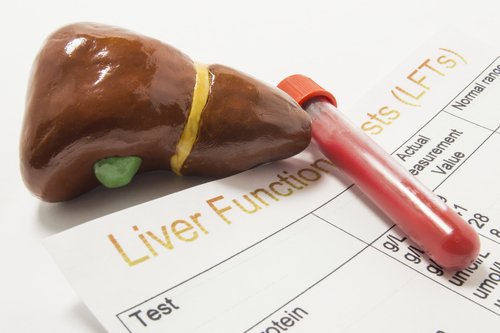Enanta’s EDP-305 Therapy Shows Promise in Treating Non-Alcoholic Fatty Liver Disease
Written by |

Candidate drug EDP-305 reduced fibrosis progression and improved non-alcoholic fatty liver disease (NAFLD) and primary biliary cholangitis (PBC) disease settings in several preclinical animal models, says the drug’s developer, Enanta Pharmaceuticals of Watertown, Mass.
Enanta featured EDP-305 in three presentations during last week’s International Liver Congress of the European Association for the Study of the Liver in Amsterdam.
Non-alcoholic steatohepatitis, or NASH, is a severe subtype of NAFLD characterized by liver injury and inflammation. It is associated with excessive accumulation of fat in liver cells; n advanced cases, NASH patients may develop fibrosis and ultimately cirrhosis of the liver. PBC is a chronic liver disease in which uncontrolled inflammation destroys the bile ducts. This causes bile to accumulate in the liver, leading to fibrosis or cirrhosis.
Enanta, based in Watertown, Mass., is investigating the therapeutic potential of its drug candidate EDP-305 for NASH and PBC. EDP-305 activates the Farnesoid X receptor (FXR), which is essential for the regulation of lipid metabolism, insulin resistance, inflammation and fibrosis in the liver.
EDP-305 is undergoing a placebo-controlled Phase 1a/b trial (NCT02918929) to evaluate the drug’s safety and tolerability in healthy adults and in those with presumptive NAFLD. In January 2017, the U.S. Food and Drug Administration granted EDP-305 its fast-track designation.
The latest EDP-305 preclinical studies show it could reduce fibrosis progression in several NASH and PBC mouse models. Researchers reported not only a beneficial effect on several biomarkers of the fibrotic process, but also a positive reduction of blood and liver fat content in NASH animal models treated with EDP-305.
“The extensive preclinical profiling of EDP-305 in a variety of in vitro and in vivo models has given Enanta the confidence to continue to advance EDP-305 in the clinic and to consider new areas, such as PSC, for exploration,” Enanta President and CEO Jay R. Luly said in a press release, adding that the company will likely present clinical data from its ongoing clinical study in healthy volunteers and presumed NAFLD subjects and to initiate NASH-enabling studies later this year.


